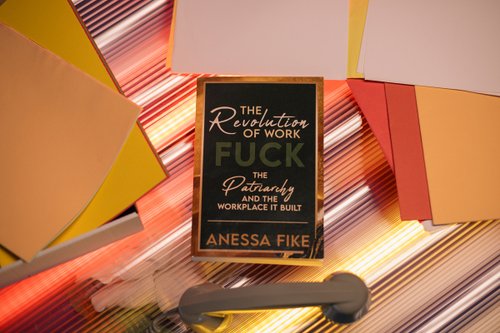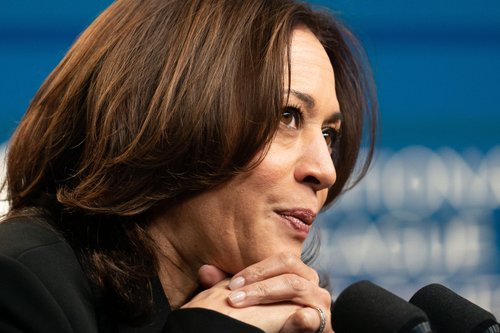Are you guilty of generational stereotyping?
Mar 07, 2023
4 mins


Journalist
The way we perceive our colleagues has a huge effect on how we work in teams and how we perform more broadly. Today, with four generations in the workplace at once, it can be tempting to make assumptions about colleagues based on generational stereotypes. But is that a helpful way to think about our co-workers?
From “workaholic” Boomers to “snowflake” Millennials, behavioral stereotypes relating to different age groups are so common they have become clichés, particularly at work. With four generations often toiling together, our workplaces are among the few arenas in which intergenerational interactions occur naturally. The Pew Research Centre defines the different working generational groups as Boomers (aged 58 and above), Gen X (aged 42-57), Millennials (aged 26-41) and Gen Z (25 and under). Studies have shown that each generation brings a distinct set of expectations, behaviors and motivations to the workplace, not to mention generational differences in communication style.
Leaning on tired stereotypes
It may seem obvious that drawing broad-brushstroke similarities between people of the same age is not the same as boxing them into a two-dimensional stereotype. Even so, many workers tend to do just that, according to Rachele Focardi, the author of Reframing Generational Stereotypes and the founder of XYZ at Work. “Stereotypes are very, very prevalent at work”, she says. “There is a lot of bias when it comes to generations.”
The problem with this is that managers might make age-based assumptions about how workers will handle tasks or what kind of training they need. At the same time, co-workers might second-guess each other’s motivations, and colleagues might misunderstand each other’s intentions. This is especially the case when they rely on stereotypes, says Dr. Eden King, a psychology professor at Rice University in Texas. “Trying to make sense of each other based on general categories, whether they are based on generations or anything else, means we are going to make a lot of mistakes” she says. “This is the problem with stereotypes, including those based on generation.”
What Millennials want
Focardi has experienced such stereotyping in her own career. When she first started working it was instilled in her to maintain a professional demeanour around colleagues at all times. That was not a problem when she was working with fellow Gen Xers, Boomers and the Silent Generation (aged 77-94), who all had similar expectations.
Then some Millennials started to join her workplace and they were keen to form more relaxed relationships. She declined “until the narrative became that I was self-important and not a team player,” typical of a “skeptical and self-reliant” Gen Xer. “What they didn’t know is that I was terrified,” Focardi says, “because I didn’t know how to reconcile ensuring productivity and hanging out with them. They didn’t know that about me because they didn’t have that context about Gen X and what the workplace had been like for us.”
King’s research suggests that beliefs and assumptions about generational stereotypes at work are “driving conflict and communication challenges” like those Focardi experienced, and more. Older workers can be thought of as less productive or denied training, while younger workers can be characterized as inexperienced and arrogant, with real implications for their career development.
Why perception of differences matters
Despite the harm generational stereotypes can cause, researchers say they persist, “and have the potential to influence individual perceptions and actions” at work. This is the case even though the perception of differences is often far greater than the actual differences that exist between different generational groups.
One of the headline findings in a PwC study into Millennials was that, while researchers identified distinctly Millennian trends, the “widespread similarities” between Millennial employees and their non-Millennial counterparts were “just as notable.” Furthermore, “myths” about Millennials were concealing “attitudes and behavior that largely mirror those of their more senior colleagues;”
In this way, the myths – or stereotypes – we tell about different age groups can hide the reality of the colleagues we are working with. They also tap into an underlying fault line between the generations: the fear of how we compare to and are seen by each other.
Older and younger workers especially are likely to believe that others buy into negative stereotypes about them because of their age, one study found, even though this is often not the case. Older workers, worried that others saw them as “boring,” “stubborn,” and “grumpy,” when their colleagues actually described them as “responsible,” “hard-working,” and “mature.” Perceptions of younger workers were also more positive than the group itself expected.
Such insecurity around different generations is common, according to Focardi. “Something that has come out loud and clear in my research and all the work I’ve done for 20 years is that generations are actually intimidated by each other,” she says.
Who needs labels anyway?
One solution could be to do away with such labels. In 2021, Philip Cohen, a sociologist at the University of Maryland, wrote an open letter to the Pew Research Centre suggesting just that. The “division between generations is arbitrary” and “causes confusion,” he wrote. Some experts are on board, suggesting that it would be better to segment workers by “individual behaviors, values, and attitudes.”
Yet removing generational labels altogether won’t erase the differences in approach that can exist between the generations. Surely it is useful for companies and colleagues to know that – while all generations agree that face-to-face meetings are “very effective” – there can be generational preferences for certain modes of communication? Or that younger generations may feel they lack confidence in their communication skills?
“People raised and entering work in the same time period are going to have all that in common, and that experience shapes what they think and how they connect to certain things,” says Focardi. “Generational diversity is very much a real thing, just as there’s cultural diversity.”
Getting a fresh perspective
As with other forms of diversity, age can be a meaningful – but not defining – factor in the way we act and interact at work. Moving beyond stereotypes means recognizing this, Focardi says: “It needs to be addressed and companies need to make sure that employees truly understand each other. Generational diversity is nothing more than wanting to really understand what the world was like when that generation came of age that may influence that generation’s mindsets and behaviors.”
It also means recognising that different generations at work might have much more in common than we first assume. This is even more the case now that workers of all ages have lived through a defining event together, according to Focardi. The pandemic “forced technology adoption, which was a major divider. It forced us to rethink leadership because empathy really became a key aspect, and every generation after Covid wants to realign their career to a greater sense of purpose,” she says. “It narrowed that divide significantly, to a point where generations are better positioned than ever to fully appreciate each other and collaborate effectively.” The challenge now is to continue to learn from that.
Photo: Welcome to the Jungle
Follow Welcome to the Jungle on Facebook on LinkedIn and on Instagram and subscribe to our newsletter to get our latest articles every day!

More inspiration: DEI

Sh*t’s broken—Here’s how we fix work for good
Built by and for a narrow few, our workplace systems are in need of a revolution.
Dec 23, 2024

What Kamala Harris’s legacy means for the future of female leadership
The US presidential elections may not have yielded triumph, but can we still count a victory for women in leadership?
Nov 06, 2024

Leadership skills: Showing confidence at work without being labeled as arrogant
While confidence is crucial, women are frequently criticized for it, often being labeled as arrogant when they display assertiveness.
Oct 22, 2024

Pathways to success: Career resources for Indigenous job hunters
Your culture is your strength! Learn how to leverage your identity to stand out in the job market, while also building a career
Oct 14, 2024

Age does matter, at work and in the White House
What we've learned from the 2024 presidential elections about aging at work.
Sep 09, 2024
The newsletter that does the job
Want to keep up with the latest articles? Twice a week you can receive stories, jobs, and tips in your inbox.

Looking for your next job?
Over 200,000 people have found a job with Welcome to the Jungle.
Explore jobs